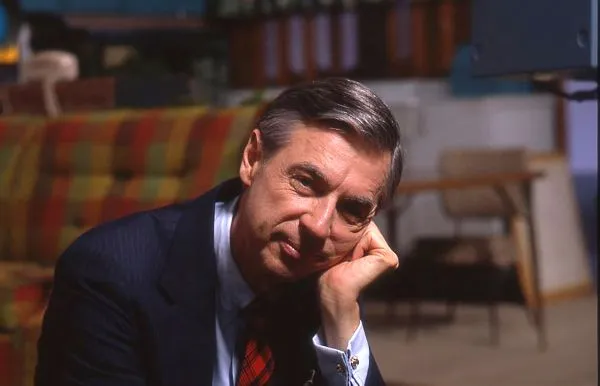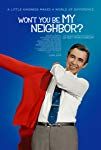Eye For Film >> Movies >> Won't You Be My Neighbor? (2018) Film Review
Won't You Be My Neighbor?
Reviewed by: Owen Van Spall

Such are the cynical times we live in that it is easy to read the synopsis of Morgan Neville's new documentary about the legendary American public TV children's presenter Fred Rogers and imagine that this will be a sordid tale of deception and failure. In fact, Neville's entrancing and poignant film, which works as a great time capsule for the ramshackle world of low-budget US public service television from the Sixties onwards, suggests some people actually aren't too good to be true. Fred Rogers, who for 30-plus years hosted the now-beloved Mister Rogers’ Neighborhood, really does seem to have been the kind, thoughtful and immensely empathetic showman that he was widely feted as being when he died in 2003.
What is interesting to parse out through Neville's collage of various modern-day talking heads and archive footage of Rogers on set and in interviews, is not just how his approach to children was so impactful but how that 'Gap dad' look (bright plain sweaters and high-waisted pants) masked a more cunning and self-aware operator. When it came to the children, Rogers, who defines his goal in one crucial interview as helping kids “through some difficult modulations in life”, struck on a one-two punch approach of expressing sincere investment in each child's uniqueness and worth via an idiosyncratic mix of puppets and live action (with all taking place on some charmingly rickety fantasy sets) while exploring with shocking frankness social issues like death, loneliness, and even - and this had my jaw drop - the topic of assassination. The sight of a Fred Rogers' tiger sock puppet asking its female co-host what assassination means (one show's air date coincided with the murder of Robert Kennedy) is not something I will forget easily. I clearly was missing out when it came to my children's TV provided by the good old BBC. Rogers was in the emotional literacy game.

As much as Roger's strict Christian upbringing, safe-looking clothes and sturdy haircut made him look like a fusion of an overgrown child and a slightly lost Sunday school teacher, it is hard not to conclude that beyond appearing inoffensive he also might have been carefully exploiting his image so he looked like he was in on the gag. If you can get Saturday Night Live to parody you in a not-too-cruel fashion, you have probably done something right in terms of getting noticed. In front of a Senate Committee that was set to cut public television funds - a danger looming again today - Rogers was brilliantly effective despite his goofy demeanour, and is credited with helping save the budget. The guy knew what he had to do to keep his show going.
I could have done with more of a focus on Roger's childhood (there are hints of bullying) and how he reconciled his religion with the explosion of various civil rights movements in the decades following his show's establishment, particularly gay rights. One of his co-stars, a closet homosexual, recalls how Rogers fretted that an out man caught at gay bars would turn away the show's sponsors, and urged him to keep his private life hidden. Rogers appears to have come around to his friend and co-worker's sexuality eventually, but were there any other areas where Rogers' beliefs jarred with an increasingly permissive culture? How did he explore such topics where he himself felt internally conflicted with his young audiences, and did he want to? And given how strident Rogers appears in interviews about how correct his methods are for opening children's minds up to the complex and often merciless world around them, I found myself wondering if he ever faced any well-argued pushback from educational specialists or parents, especially those who were atheists. To what extent what Rogers just giving a modern gloss to Christianity with his show, as opposed to genuinely trying to drain away the ideology so as to reach a broader audience? Did parents, and the children who later grew up after watching his show, feel bothered by this?
Regardless, Neville makes a solid case about why Rogers' impact remains so great even if the man himself remains partially concealed from us. Rogers seems in no danger any time soon of being torn from that image of red jumper-sporting kindly uncle and all-round symbol of decency. It is no wonder Tom Hanks is playing him in the upcoming biopic; Hanks, like Rogers, unceasingly seems a symbol of a world that we wish still existed. A world when things made sense because people we trusted were there to explain it patiently and with a smile.
Reviewed on: 27 Oct 2018


















